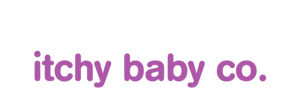What is the Atopic Triad and why is it important for eczema?
What is an Atopic Triad?
So, you have found out your child has eczema. One of the most important things to do is to develop a daily skincare routine with bath soaks and eczema moisturiser to to keep irritants away and provide protective barrier to help reduce the risk of infection. It’s also the right time to let you know that eczema is commonly associated with asthma, allergic rhinitis (hay fever) and food allergies and the Atopic triad refers to the genetic likelihood of developing these conditions together.
Children who have eczema are more likely to develop asthma and hay fever, and this is because they have their immune system can over-respond to allergens. The various conditions of the Atopic triad usually present early in life, soon after birth. The best way to deal with your child’s allergic conditions is to track down potential triggers and maintain a skincare routine that suits your child. Generally, eczema is the condition diagnosed first as part of the atopic triad, then hay fever and asthma.
Why do people get eczema and allergies?
There have been many questions of whether eczema and allergies are due to a problem with the skin barrier, which allows allergens to enter the body, triggering eczema, or vice versa – due to an over-active immune system that leads to inflammation and then a broken skin barrier, which results eczema. After several years of research, there has been evidence that there is a skin deficiency which allows allergens and irritants to more easily enter the skin. The environment also plays an important role in flare ups so watch out for what triggers your child’s eczema and try your best to avoid them.
The Atopic Triangle
The conditions of the Atopic triad are genetic, so there is a higher chance of your child having these skin conditions if you have suffered from them in the past. Studies have shown that roughly 70% of those who suffer from one of the allergic conditions, may experience symptoms from another one of these conditions from the triad.
Signs that your child is suffering from the Atopic triad
Some of the early warning signs that your little one might show are:
- The development of eczema from a very young age. Symptoms include, itchy dry skin, redness, rash, scaly and crusted sores.
- Children may not develop all three conditions together, and may suffer from asthma and hay fever later in life, but it is important to be aware for their signs and triggers.
- People who have hay fever mostly have their allergies triggered by pollen, dust and mould, especially during spring time. Some of the common symptoms include sneezing, itchy/watery eyes, and an itchy nose and throat.
- You should watch out for any signs of asthma, such as coughing at night or during exercise, as well as having difficulty breathing, wheezing, breathing fast through the mouth or tight feeling in the chest. If you think your child may have asthma, please contact your doctor.
What can I do to manage my child’s symptoms?
- Setting up an air purifier in your child’s room can help to keep the area clear of allergens and dust.
- Wet dusting and regular vacuuming to decrease house dust mite.
- Being aware of the pollen count especially during spring time when deciding how to spend your day.
- The most important way of managing your child’s symptoms are to maintain an appropriate skin care routine by giving your child a daily bath to keep irritants away, providing a protective barrier to help reduce the risk of infection. And remember, moisturise moisturise moisturise.
This blog post was brought to you and your family with love from Julia and the itchy baby co. team x.
Disclaimer: Information provided is of a general nature only, and you should always consult your medical professional.

